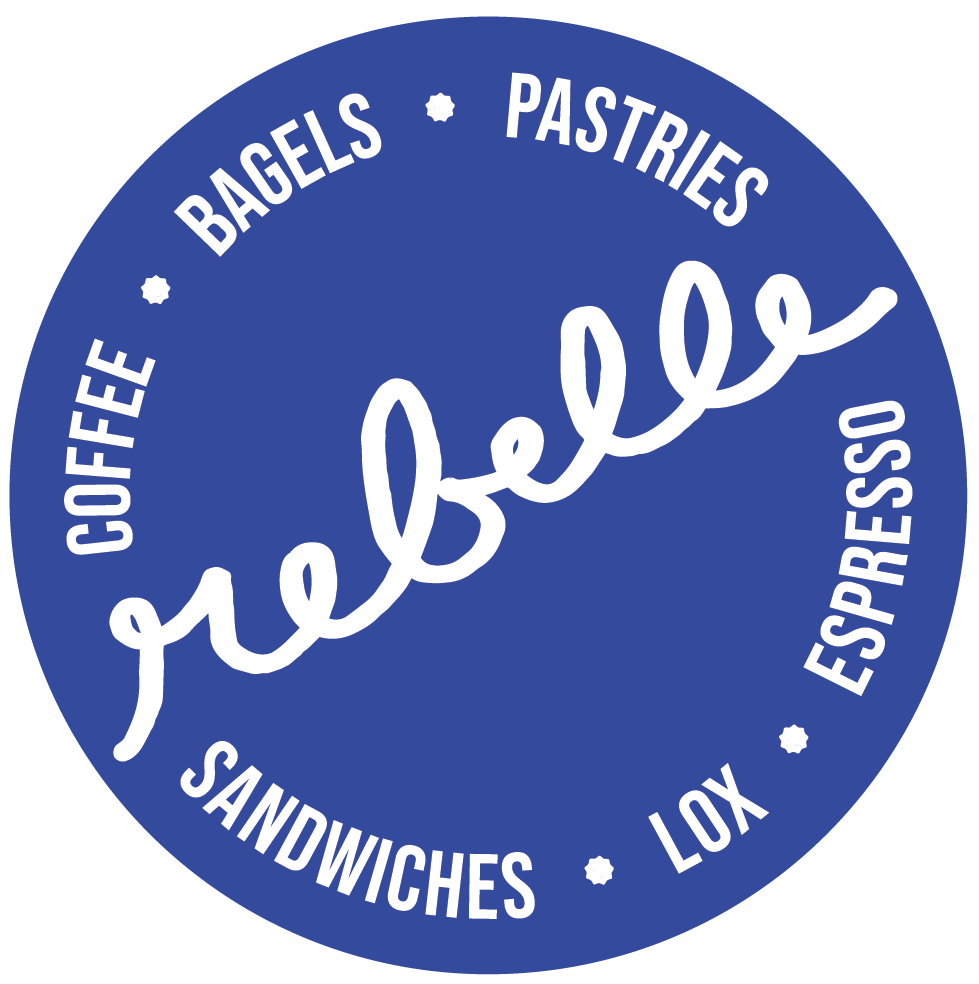During our recent BIG IDEAS customer survey where we asked you what you want to see from Rebelle, a few of you mentioned you wanted to see us on delivery services like UberEats, Grubhub and DoorDash. We have made a very conscious decision NOT to partner with any of these service providers. By charging low delivery fees, these services massively devalue the work and time that goes into preparing meals and getting them to you, all while creating little/negative value for the parties doing the work. Maybe I’ll sound a bit alarmist for your taste as you read below… But maybe I convince you to try a different way to support your local businesses!
Do you know how these companies make money? These delivery companies make money by charging customers an opaque delivery fee (typically under $8) and charging the restaurant a commission on every order generated, typically 20-40%. Last year, I spoke to someone from UberEats, which charges a 30% commission. A restaurant would be BLESSED to run at 30% net margin; more commonly, margins hover below 15%. These services eat up the entire margin for most orders – and for some businesses, it generates an actual loss.
UberEats pitched their service to me as a profit-neutral marketing platform. If you do “legacy” advertising, you are spending money on print, TV, radio, billboards, etc. Being on UberEats puts a million gajillion local eyeballs on your business, they said. Maybe you break even or lose a bit on the initial order, they said, but that customer will return to your shop and order directly from you, so you’ll make money on subsequent transactions. They’re a lead-generation service!
I was not convinced, and when I pressed them for some kind of stats on the topic (i.e. return rates from UberEats to in-store) they couldn’t produce anything. That was surprising! Uber has TOO MUCH FREAKIN’ DATA for me to believe they haven’t looked at this.
On top of eating up your profit and being a marketing tool of questionable efficacy, these delivery services have tons other intangible ways to chip away at the restaurant’s value, like bad delivery experiences to refund, food to remake when it arrives cold and potential brand damage. Very few customers have the awareness to separate the restaurant experience from the delivery experience; it’s all one and the same. And the operational headaches: If delivery grows, you have to staff up for it, so you can’t spread the labor costs over more sales anymore. And you have to redesign your operations to accommodate a new source of orders: anything from “where do we stick the 4 delivery tablets?” to finding storage room for more packaging. This operational struggle is very real for some of the restaurant owners I’ve talked to. All of this for very little/negative profit margin.
The drivers working for these services do not make much money either. You would not know this from UberEats’ website – I actually could not find any information about how much to expect in hourly wages. I suspect the only way to know the average hourly rate is to actually sign up and work for the service and keep track yourself. (It’s worth pointing out that the way UberEats markets itself to drivers boils down to “make some quick money” with a thin veneer of empowerment and freedom.)
For over a year now, I have been following the news on this industry. It’s surprising that none of these companies are doing very well financially despite their aggressive expansion. DoorDash was embroiled in a tip-skimming scandal this summer, where customer tips were subsidizing DoorDash’s contribution to the driver’s payout (instead of the tips being additive to the drivers’ payouts). GrubHub has been signing up restaurants without their consent and they don’t sound proud of their newest strategy. (We’ve been signed up without our consent before and it is super uncomfortable to turn the drivers away!) Uber is too busy circling the drain to figure this one out.
SO. Maybe we should give up on this idea that we can get away with paying a few bucks to escape the pain of getting our own food. This isn’t a sustainable economic activity and getting food delivered shouldn’t be so cheap. Nobody has figured out yet how to do it in a way that creates value for all the players involved: customers, restaurants and drivers. Buying from a local business at zero/negative profit to them is not how we should think about supporting local businesses. The environmental impact of having people driving around on these deliveries, the low level of accountability these companies have to their drivers (who are treated as employees but classified as independent contractors), the sheer greed that drives the investors behind these companies to build massive scale so they can monopolize the market… No matter how I slice it, this business looks rotten. I feel very strongly about this and I don’t support these services as a customer or as a business owner. Let’s get off our asses and pick up our own food — or better yet, get the full value of our dollars and enjoy the food on site!
Still, we can’t deny this fact: At the heart of this problem, there is an unmet need for ease and convenience. That’s why people use these services. At Rebelle, we are trying to find more ways to address the customer needs that the delivery services fills. We have a new online store, which is an improvement over the old store in many ways but it’s still very much imperfect. We’ve also experimented with taking orders via text! And for pre-planned occasions, we are happy to personally deliver orders for a modest fee. We’ll continue to look for ways to embed some technology into our service to make things more convenient for you while keeping our focus on running a sustainable, profitable business.
And that’s it, thanks for coming to my TED Talk, y’all :P
